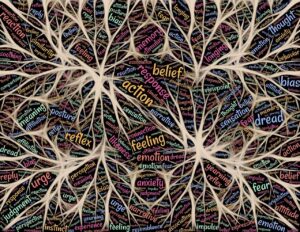Effective Treatment for Anxiety: Methods that Last
Over 40 million people in the US are suffering from and searching for effective treatment for anxiety. Anxiety is a debilitating state of mind in which excessive worry rules the lives of those who struggle with it. There is no age restriction for anxiety. Children, teens, and adults can suffer from this disorder. Huntington Beach Christian Counseling can provide support and strategies to help manage and reduce anxiety.
Treatment for anxiety: what can be done?
 Treatment for anxiety depends on multiple variables such as symptoms, time, place, age, and availability of resources. Fortunately, anxiety is not new. Research has been operating for over 2,000 years in relation to the treatment for anxiety. While there is no guarantee in any method of treatment for anxiety, there are treatments proven to be more effective and longer lasting than others.
Treatment for anxiety depends on multiple variables such as symptoms, time, place, age, and availability of resources. Fortunately, anxiety is not new. Research has been operating for over 2,000 years in relation to the treatment for anxiety. While there is no guarantee in any method of treatment for anxiety, there are treatments proven to be more effective and longer lasting than others.
Anxiety symptoms.
Anxiety symptoms have been defined in a Diagnostic Statistics Manual (DSM) for clinicians since 1952. The current understanding of anxiety has led to a number of symptoms to be included for the diagnosing of anxiety. While there is a stand-alone anxiety disorder, any number of these symptoms can be present in conjunction with other disorders. This is one reason a therapist is helpful when treating anxiety.
The current edition of the DSM (DSM V) describes 11 different anxiety disorders. These include: Social Anxiety, Panic Disorder, Agoraphobia, and Unspecified Anxiety Disorder.
Anxiety is defined in the DSM as having “excessive anxiety and worry (apprehensive expectation), occurring more days than not for at least six months, about a number of events or activities (such as work or social performances).” Five more criteria are looked at for clinicians to diagnose anxiety, including the focus of the anxiety, specific symptoms, and the level of control over the anxiety.
Effective treatment for anxiety can depend on the variety of symptoms each individual is experiencing. Methods that last have three things in common: the expectations the individual holds, rewiring the brain, and finding support.
Treatment for anxiety: methods that are proven to last.
Brain training (known by many names).
Brain training, also known as rewiring the brain, is a far-reaching and long-lasting method of treating anxiety. A simple way to understand brain training is: changing the way your brain operates with anxiety by either chemical work, physical work, or both.
Chemical work for anxiety is done by use of medications. This approach is monitored by medical professionals and aids many people in a similar way as heart medication –allowing for a chemical support to reduce anxiety’s overstimulation of the brain and body.
Physical work for the treatment of anxiety is done by the use of physical and/or mental exercises that strengthen the brain’s response to anxiety and thereby reduces the effects of anxiety. This work is done with the help of a therapist or counselor.
The brain training method, whether chemical, physical, or a mix of both, is an effective treatment for anxiety and one of the methods proven to last. After the initial learning of brain rewiring, many who struggle with anxiety can expect to use this approach in a practical manner throughout their lives.
Expectations.
Finding an effective treatment for anxiety with methods that last can be a discouraging journey and the expectations of an individual suffering from anxiety matter when deciding to get help. Not everyone is the same, neither is every therapist
 When searching for effective treatment for anxiety, there needs to be a basic level of understanding that not all people are the same. The way that one individual suffers with anxiety may not be the same as another.
When searching for effective treatment for anxiety, there needs to be a basic level of understanding that not all people are the same. The way that one individual suffers with anxiety may not be the same as another.
Methods that last rely on appropriate expectations from the individual suffering with symptoms of anxiety. To expect that seeing one therapist for a certain amount of time will “cure” anxiety is likely going to lead to disappointment.
Avoiding the disappointment is possible by adjusting expectations in this area. Know that the individual suffering with anxiety may need to rely on their own ratio of chemical and physical work.
Know that it is okay to change therapists should the relationship not feel supportive. That being said, it is important to consider expectations for how consistent one needs to be in order to effectively reduce symptoms of anxiety.
Consistency in any method is key.
Expectations regarding the amount of consistent work it will take to develop an effective treatment for anxiety are important. Methods that last require that the individual suffering with symptoms of anxiety make effort to keep up with treatment.
This takes shape in a couple of ways. One, the individual must expect that while working with one therapist or another can produce more effective results depending on the relationship, this does not mean that working with any therapist will always be pleasant.
When utilizing effective treatments for anxiety, clients can face periods of discomfort and difficulty when working through the physical and mental work. It is important to continue the work consistently to find the most effective treatment to reduce anxiety symptoms overall for each individual.
Chemical work also has the potential to produce negative results in some cases, and requires consistent monitoring and self-advocacy from the individuals utilizing it. Methods that last require the individual’s consistent effort to work with the tools and supports put in place.
It may work at different times.
With the best consistency and greatest support systems, anxiety symptoms may still rise from time to time. It is important to set expectations regarding the effectiveness of the tools you develop.
Any method that lasts helps an individual develop multiple tools to reduce symptoms of anxiety. Each of these tools has a time and a place for effectiveness. Where one tool may be all one needs in one instance of being anxious, a different tool or multiple tools in succession will be required in another. This includes the tool of accessing a support system.
Finding support: medication, family, friends, church, and counseling.
Support for anxiety comes in multiple forms: medication, medical professionals, family and/or friends, church and community groups, and a therapist/counselor.
These supports all serve the purpose of coming alongside an individual to encourage, redirect, and/or provide trusted perspective and insight the individual can rely on when their own may be skewed by anxiety. The Christian counselors at Huntington Beach Christian Counseling are here to offer guidance and help you find clarity and peace.
It is important to develop a variety of supports. Each support plays a part in methods proven to last when treating anxiety. A therapist can help you develop these support systems.
If you are struggling to know where to start or simply ready to begin working on developing the tools to reduce anxiety, reach out to me or another local therapist today.
“Help”, Courtesy of rebcenter-moscow, Pixabay.com, CC0 License; “Brain Map”, Courtesy of johnhain, Pixabay.com, CC0 License; “Silhouettes”, Courtesy of geralt, Pixabay.com, CC0 License; “Help”, Courtesy of geralt, Pixabay.com, CC0 License






